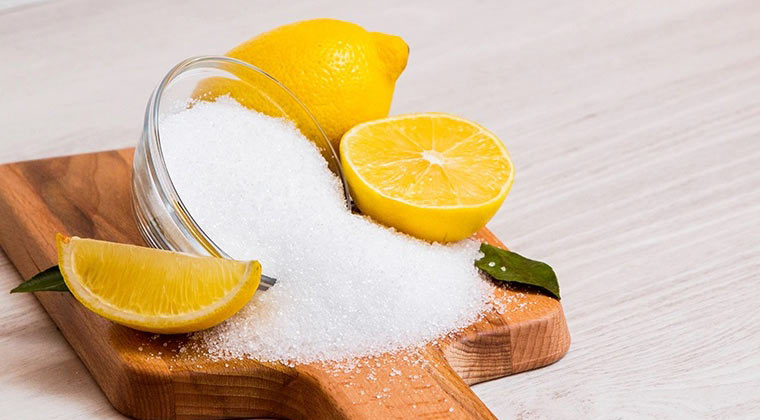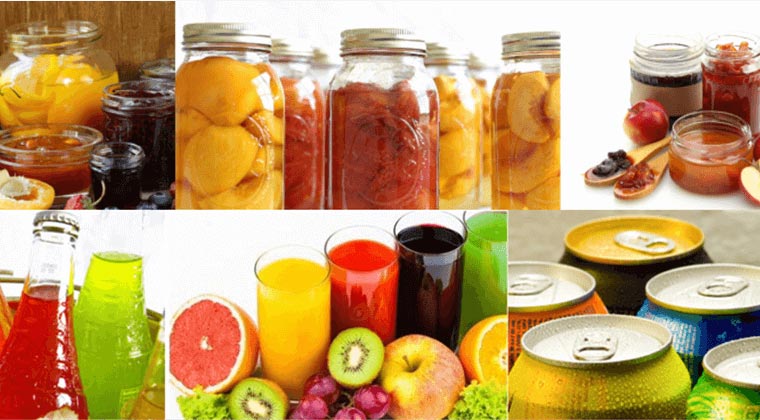Product Description
Citric acid (CA) is an important organic weak acid with the molecular formula C₆H₈O₇. It is a white crystalline powders, colorless crystals or granules in appearance, odorless, easily soluble in water, and the solution is acidic. And it is slightly deliquescent in humid air. In biochemistry, it is an intermediate in the citric acid cycle (tricarboxylic acid cycle), which occurs in the metabolism of all aerobic organisms. Therefore, citric acid is mainly used as acidulant, flavoring agent, preservative and antistaling agent in food and beverage industry. It is also used as antioxidant, plasticizer and detergent in chemical, cosmetics and cleaning industries.
It can exist in anhydrous or monohydrate form. Generally speaking, citric acid anhydrous crystallizes from hot water, while citric acid monohydrate crystallizes from cold water. Citric acid monohydrate can be converted into anhydrous citric acid by removing bound water at 78 °C. Citric acid is also soluble in absolute ethanol at 15 °C and can react with ethanol to form ethyl citrate. Once the temperature exceeds 175 °C, citric acid also decomposes and releases carbon dioxide.
| Item | Unit | Quality Standards | Analysis Results |
|---|---|---|---|
| Characters | --- | White or almost white, crystalline powder, colourless crystals or granules. Odorless, has a strongly acid taste. effloresces in dry air. Very soluble in water, freely soluble in ethanol. | Pass |
| Identification | --- | Pass Test | Pass |
| Appearance of solution | --- | Pass Test | Pass |
| Assay | % | 99.5~ 100.5 | 99.8 |
| Water | % | ≤0.5 | 0.15 |
| Readily Carbonisable Substances | --- | Pass Test | Pass |
| SulphatedAsh (Residue on Ignition) | % | ≤0.05 | 0.02 |
| Sulfate | mg/kg | ≤150 | <150 |
| Oxalate | mg/kg | ≤100 | <100 |
| Lead | mg/kg | ≤0.5 | <0.2 |
| Arsenic | mg/kg | ≤1.0 | <0. 1 |
| Mercury | mg/kg | ≤1.0 | <0.5 |
| Aluminium | mg/kg | ≤0.2 | <0.2 |
| Heavy Metals | mg/kg | ≤5.0 | <5.0 |
| Bacterial endotoxins | IU/mg | <0.5 | <0.5 |
| Conclusion:The product is in conformity with BP/USP/FCC/E330 | |||
Application of citric acid in food industry
Citric acid monohydrate is mainly used as an acidic flavoring agent in refreshing drinks, juices, jams, fruit candies and canned food, etc. It can also be used as an antioxidant in edible oils. At the same time, it improves the sensory properties of food, enhances appetite, and promotes the digestion and absorption of calcium, phosphorus and other substances in the body. And citric acid anhydrous is used extensively in solid beverages. The salts of citric acid (such as calcium citrate and ferric citrate) are fortifiers that require the addition of calcium ions and iron ions in certain foods. Citric acid esters such as triethyl citrate can be used as non-toxic plasticizers to manufacture plastic films for food packaging, and are sour agents and preservatives in the beverage and food industries.


